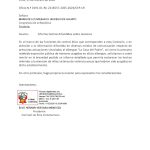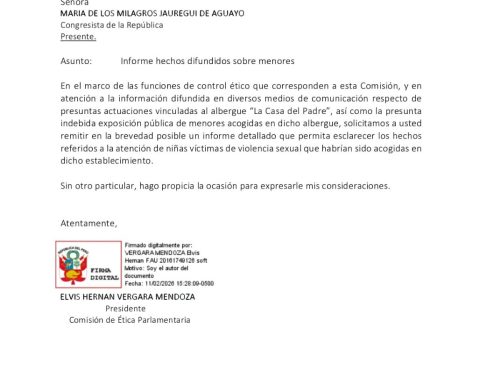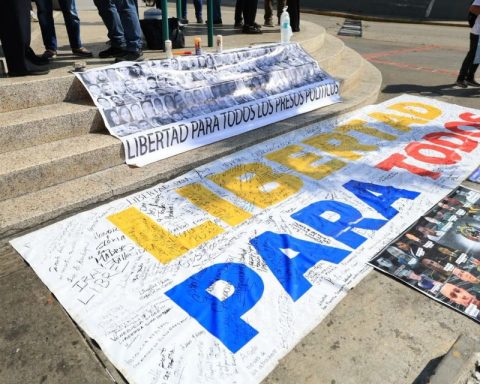The final scrutiny grants 32 seats to Netanyahu’s Likud, which triumphs in the elections and reaches 64 deputies together with the Religious Zionist Party (14) and the ultra-orthodox Shas (11) and United Judaism of the Torah (7).
A) Yes, this block of parties exceeds the minimum majority of parliamentarians necessary to rule in a House of 120.
The next step will then be the presentation of the final results to the president, Isaac Herzog, who will receive the leaders of the parties with parliamentary representation in the coming days, so that they can recommend a candidate for the position of prime minister.
Netanyahu is expected to easily reach the minimum majority of 61 recommendations and receive the mandate to form a government.
After this procedure, the former president will have to negotiate with the leaders of the parties of his block to distribute ministerial portfolios, something that should not be an obstacle given that the four formations that comprise it have been united throughout the entire campaign.
The current acting prime minister, Yair Lapid, already communicated with Netanyahu today to congratulate him on his victory and inform him that he has already given “instructions to his entire office to prepare an orderly transfer of command.”
Also read: The White House deletes a tweet after a Twitter intervention
“The State of Israel is above any political consideration. I wish Netanyahu success, for the good of the people of Israel and the State of Israel,” said the outgoing leader, whose centrist party, Yesh Atid, finished second in the election with 24 seats.
Thus, the longest-serving prime minister in the history of Israel with a cumulative 15 years in power, will regain the position he lost in June 2021 at the hands of the so-called “Government of change” formed by Lapid together with seven parties from all over the world. political arc.
Netanyahu will return to lead Israel as the trial against him continues, in which he is charged with fraud, bribery and breach of trust in four separate corruption cases.
This judicial process was one of the central themes of the campaign, since the Religious Zionist Party anticipated that, if it were to form part of the Government, it would seek to carry out a profound reform of Justice, including measures that would benefit Netanyahu in his trial.
The 14 seats obtained by this far-right formation and with openly racist and homophobic members make it the third political force in Israel and will give it strength for the coalition negotiations.
The fourth party in number of votes was National Unity, headed by the current Minister of Defense, Benny Gantz, and who has already anticipated that its 12 deputies will form part of the opposition bloc.
You may also be interested in: Roadblocks in Brazil lose strength after Jair Bolsonaro’s request
They were followed by the two ultra-Orthodox formations that would make up the new government, while in seventh place was the secular right-wing Israel Our Home, also a member of the anti-Netanyahu bloc and which won six seats.
One of the main novelties of these elections was the crushing defeat of the left parties.
Labor, which has governed Israel since its foundation and for much of its history, won a record low of four seats and the pacifist Meretz did not reach, for the first time in its history, the minimum number of votes to enter Parliament.
On the other hand, the Arab formations Raam and Hadash-Tal obtained five deputies each, while the Arab nationalist party Balad did not reach the minimum of 3.25% necessary to obtain parliamentary representation by a few votes.
A striking element of the final electoral results is that, although the bloc led by Netanyahu will have 64 of 120 members of Parliament, among the four parties that comprise it they added only 48.36% of the votes, exceeding by less than 6 % to the opposition bloc in the Chamber.
The remaining votes went to parties that did not enter parliament, notably Meretz, Balad and the far-right Jewish Home.
Here the final results:
Likud: 32 seats (23.41% of the vote)
Yesh Atid: 24 seats (17.78% of the vote)
Religious Zionist Party: 14 seats (10.83% of the vote)
National Unity: 12 seats (9.08% of the votes)
Shas: 11 seats (8.24% of the votes)
United Torah Judaism: 7 seats (5.88% of the vote)
Israel Our Home: 6 seats (4.49% of the votes)
Raam: 5 seats (4.07% of the votes)
Hadash-Tal: 5 seats (3.75% of the votes)
Labor Party: 4 seats (3.69% of the vote)


















